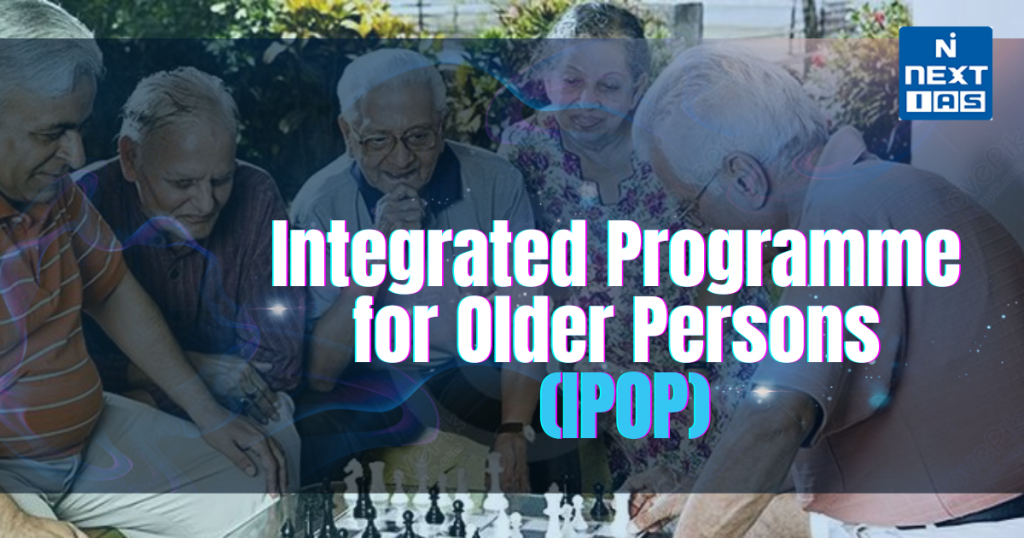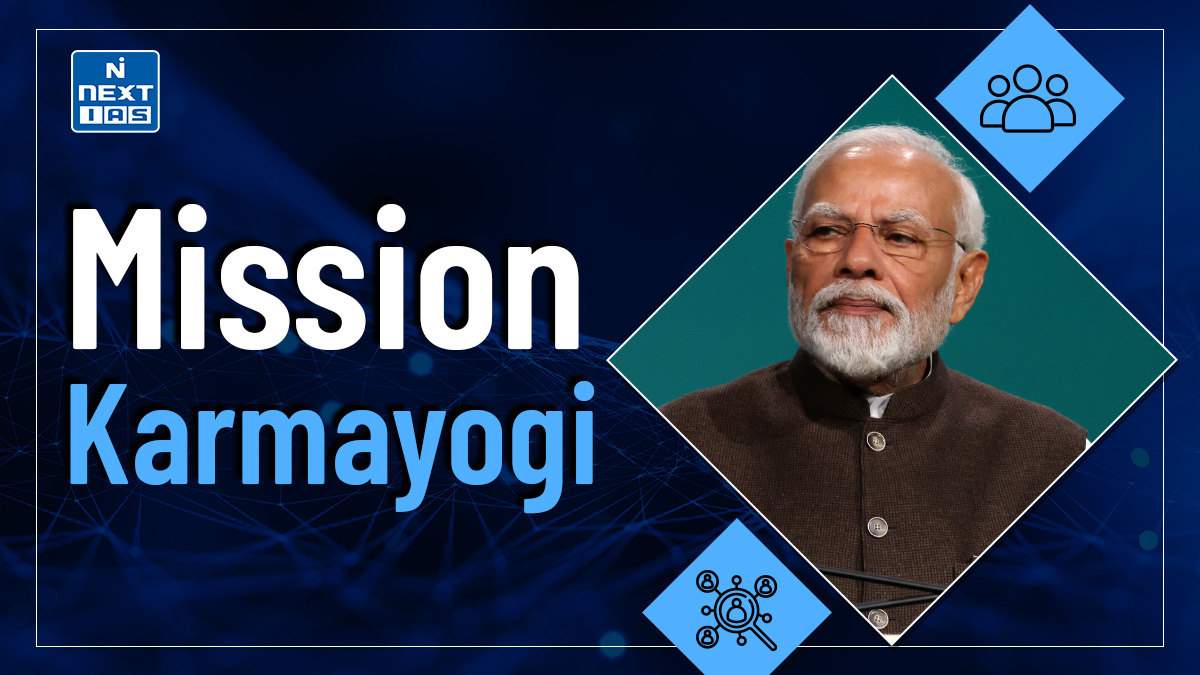
The IPOP or Integrated Program for Older Persons is a scheme that depends on the Government of India. Under the aegis of the Ministry of Social Justice and Empowerment, this program aims at improving the aging life by way of embedding some financial support to NGOs that are setting up or managing important services such as old-age security homes, healing, and daycare services for older people.
About the Integrated Programme for Older Persons (IPOP)
- This is the Integrated Programme for Older Persons (IPOP), which was launched by the Ministry of Social Justice and Empowerment in India.
- The government assistance program provides financial assistance to Non-Governmental Organizations (NGOs), State Governments, and local bodies for different types of services, such as shelter for the elderly, day care centers, mobile medical units, and other support systems, which promote the physical, emotional, and social well-being of senior citizens.
- The main strength of the IPOP program is to provide healthcare shelter and social security to the elderly, particularly the weaker section.
- The program mentions the need to integrate senior citizens into the community through opportunities for participation and interaction.
- The IPOP would ensure dignity, independence, and participation of elderly persons in the life of society through these services.
Objectives and Eligibility of The Integrated Programme for Older Persons (IPOP)
The Integrated Programme for Senior Citizens (IPSrC) is a Central Sector Scheme implemented by Ministry of Social Justice and Empowerment, New Delhi. The main objective of the Scheme is to improve tje quality of life of the Older Persons by providing basic amenities like shelter, food, medical care and entertainment opportunities and by enfouraging productive and active ageing through providing support for capacity building of Government/ Non-Governmental Organizations/ Panchayat Raj Institutions/ Local Bodies and the Community at large.
Objectives
The assistance under the Integrated Programme for Older Persons (IPOP) is given to NGOs/ other organizations mentioned above for the following purposes:
- Programmes catering to the basic needs of Older Persons particularly Food, Shelter and Health Care to the destitute elderly.
- Programmes to build and strengthen intergenerational relationships particularly between children/ youth and Older Persons.
- Programmes for encouraging Active and Productive Ageing.
- Programmes for providing Institutional as well as Non-Institutional Care/ Services to Older Persons.
- Research, Advocacy and Awareness Building Programmes in the field of Ageing; and
- Any other programmes in the best interest of Older Persons.
Eligibility Criteria
- NGO should be registered society / Public Trust with appropriate society bye-laws/ aims & objects clearly defined in the memorandum and managed by its own members on democratic principles.
- The organisation shall have a properly constituted managing body with powers, duties and responsibilities clearly defined and laid down in a written Constitution. It shall have an appropriate administrative structure and duly constituted managing/ executive committee.
Should have at least 2 years work experience in the field of related service.
Should not be run for profit with proven credentials and capabilities to handle such projects.
Significance of the Integrated Programme for Older Persons (IPOP)
The Integrated Programme for Older Persons (IPOP) offers great importance in how senior citizens have problems in India. Here are a few areas in which IPOP focuses even more:
- Quality of Life Improvement: IPOP provides old age homes, day care centers, and health care services that are essential to stimulating life in dignity and comfort for the elderly.
- Social Integration: This scheme promotes the participation of older persons in community activities, thereby preventing their isolation and promoting emotional well-being.
- Access to Health Care: IPOP renders health services to incorporate senior citizens who come from weaker sections of society to handle chronic ailments, among others, along with restrictions of mobility.
- Support to Vulnerable Elderly: The program serves those seniors who do not have family support or are in terribly difficult economic conditions and provide shelter and care to such aged people.
- Empowerment and Independence: IPOP strengthens the independence of seniors through the programs and thereby allows them to lead a dignified life.
- Community-Based Solutions: The scheme envisages participation by NGOs and local bodies so that the services are adapted to the needs of that particular region.
The Integrated Programme for Older Persons (IPOP) plays an important role in ensuring a dignified, supportive, and integrated living for older people in society.
Lacunae of the Integrated Programme for Older Persons (IPOP)
Some of the gaps that exist in the Integrated Programme for Older Persons (IPOP) affect its success:
- Reduced Access: The programme is shown to be heavily urban-centric, with scanty outreach to rural areas where facilities for old people are actually needed.
- Poor Infrastructure: There are not enough proper old-age homes, day care centres, and healthcare facilities to help in the outreach of the programme.
- Dependence on NGOs: A major component of IPOP is reliant upon NGOs to deliver the services; this often leads to variance in service delivery and quality in different regions.
- Inadequate Funding: In view of the burgeoning needs of the elderly population, the funds allocated to the scheme seem inadequate, thus limiting the number of beneficiaries.
- Awareness and Accessibility Issues: Many senior citizens cannot access the scheme in its entirety, especially in rural and remote areas where limited knowledge prevails about it.
- Coordinative Flaws: In some cases, there are gaps in the coordination of the government departments with other agencies in charge of implementation, which consequently affects service delivery.
- Over-dependence on Institutional Care: Because the programme places more emphasis on institutional care, such as old age homes, rather than providing community care alternatives or family support, it may not be the best solution, as most of the elderly people would prefer to stay in family or community-based settings.
Bridging these gaps needs to be considered if IPOP is to be made more efficient and inclusive so that all senior citizens can receive the necessary care and support.
Key Pointers about the Integrated Programme for Older Persons (IPOP)
- Launch: The IPOP initiative of the Ministry of Social Justice and Empowerment aims to improve life for older persons in India.
- Target: Supporting elderly citizens, particularly those from disadvantaged backgrounds, and without family support.
- Objectives:
- To provide basic amenities like old age homes, day care centers, and mobile medical units.
- To enhance the physical, emotional, and social well-being of senior citizens.
- Financial Assistance: Provides grants for NGOs, State Governments, and local bodies for establishing and maintaining services for the elderly.
- Key Components:
- Setting up of old age homes, day care centers, and health facilities.
- Mobility aid and medical care through mobile units.
- Creating consciousness programs regarding rights and needs of senior citizens.
- Focus: Social integration, health care, shelter, and community-support for the elderly.
- Importance: It ensures respect, independence, and a better quality of life for older citizens, particularly those who are vulnerable.
- Challenges: Issues include a limited reach, bad infrastructure, and dependence on NGOs for service delivery.
Way Forward
The future visions for the Integrated Programme for Older Persons (IPOP), are making a concerted effort in intensifying awareness to rural and underserved areas, strengthening the financial support, improving health services, and creating more age-friendly infrastructure. Strengthening monitoring, creating partnerships with NGOs, as well as promoting skills development, would have ensured better implementation and outreach for the elderly population.
Conclusion
The Integrated Programme for Older Persons (IPOP) is an extremely important step towards improving the quality of life of the elderly. The program assists with the well-being of the elderly through the provision of financial aid to basic health care, shelter, and welfare assistance, thus furthering active aging and integration into society in dignity and respect.





